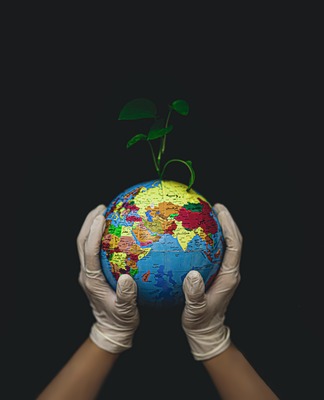Global Justice and Individual Responsibility
Seminar by Dr. Alexander Schulan
02.11.2020 – 08.02.2021
Some people benefit from improved healthcare, increasing life expectancy, universal education, democratization and might even live in affluence. In contrast to that, other persons have to live in extreme poverty and under precarious circumstances. Similarly, injustices are often connected with environmental degradation. For example, rich people cause climate change by their greenhouse gas intensive lifestyle, where poor people suffer from the negative consequences like sea-level rise. These enormous inequalities in a divided world raises many important moral questions. A global and public debate about justice is needed which should help us to figure out how we should live together on this planet. Empirical phenomenon like globalization, migration, international trade, climate change and pandemics urge humanity even more to deal with such questions of global justice.
In the seminar we will explore the linkages between complex global injustices on the one hand and the individual person as agent on the other. For example, persons living in rich countries might doubt that global injustice is a problem and that there should be something done to improve the situation for less advantaged persons. In order to figure out the individual responsibility given global injustices, the contribution of the individual to the injustice and her capacity to reduce the injustice are plausible starting points in the debate. Possibly, individuals not taking account of their responsibility not to contribute to global injustice might also not comply with their responsibility not to cause damage to the environment, which might be a direct consequence of the injustice. In addition to that, we will apply moral accounts like cosmopolitanism and egalitarianism in the context of global injustice. Cosmopolitanism is based on the idea of a cosmopolitan ethos, where individuals act responsibly as citizens of the world. And, global relational egalitarianism is based on the idea that equality is a social and interactional value that is realized by relationships between all members of the global community.
Furthermore, we will debate if individual acts matter to heal global injustices which might be best dealt with collective action. Climate change is a paradigmatic example for the need for collective action. It is not one isolated individual who will be able to stop climate change by reducing her emissions of greenhouse gases. In contrast to that, global and coordinated measures are necessary to decrease the level of emissions to stop climate change. We will also discuss moral overdemandingness, which arises if moral demands expect too much of individuals and who accordingly fail to comply with their individual responsibility. And, in the open discussions within the seminar, we will apply the concepts of justice and responsibility of the readings to moral wrongs like climate change, environmental degradation and species extinction.

- Language: English
- ECTS: 6 ECTS Points
- Timeframe: 2 hours per week
- Dates: Mondays, 4:15 pm - 17:45 pm
- Online via Moodle and Zoom
- Registration online: 12.10.2020 until 26.10.2020
- Belegnummer: 14804

